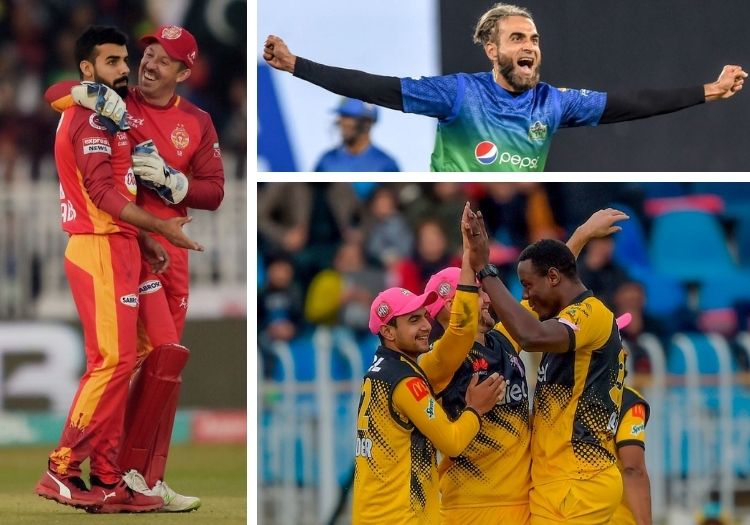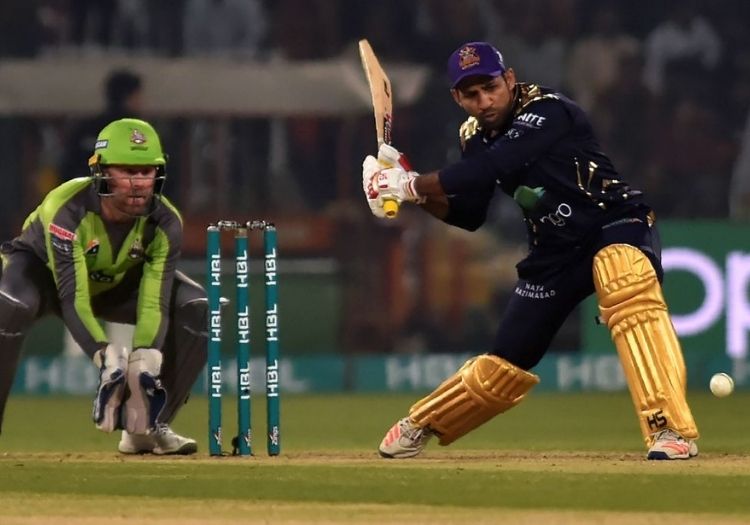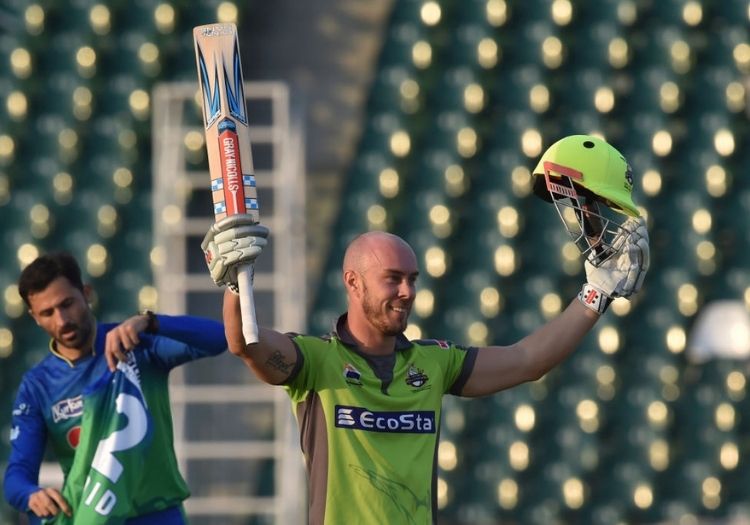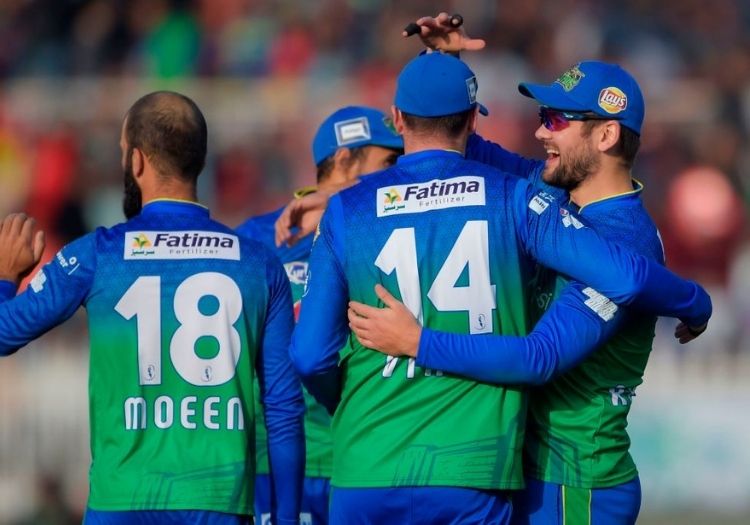The Pakistan Super League returns after a coronavirus-enforced break this weekend, with four teams competing in the play-offs. NICK FRIEND recaps what has happened so far...

Given everything that has happened since the coronavirus pandemic halted the fifth edition of the Pakistan Super League, it would be easy to forget the real significance of this year’s tournament.
As elite-level cricket has gradually returned to Pakistan in the decade since the deadly attack on Sri Lanka’s team bus in 2009, the PSL has been at its fulcrum. With each passing success, more overseas players have followed, including 15 Englishmen in this year’s initial event.
The final was staged at Lahore in 2017 and then Karachi in 2018 before the last nine matches came home in 2019 as the precursor to 2020’s landmark competition.
Played out entirely in Pakistan across four venues, it had passed without a hitch until Covid-19 reared its head.
"Pakistan is a beautiful country – the food, the place, the people are amazing," Moeen Ali, who played for Multan Sultans during the initial group phase, told The Cricketer in February. "It has a lot to offer, as do other places people think are not so safe."
And so, eight months later than planned, there is a very real symbolism in completing what had begun in February – in a world far simpler than the bubble-based microclimate that awaits the PSL as it reconvenes for its playoff stage.
As much as there is an important sense of sporting integrity in crowning a winner at the end of a 34-match event, it feels essential that the milestone of the Pakistan Super League’s homecoming is played to an appropriate finish.

The PSL returns this weekend
Under the stewardship of Andy Flower, Multan Sultans dominated the round-robin stage, losing just twice. Islamabad United collected the wooden spoon despite the runs of Colin Munro, Luke Ronchi and Shadab Khan – all three were among the eight-highest run-scorers.
Predictably perhaps, Babar Azam has led Karachi Kings into the qualifier against Multan; now Pakistan’s captain across all formats, he is 61 runs clear atop the run-scoring charts, having hit 11 more fours and faced 82 more balls than anyone else.
With the ball, the local talent has been similarly dominant. It is often said by players and pundits alike that no other franchise league possesses such depth of quality seam bowling. Between them, Shaheen Shah Afridi, Wahab Riaz, Sohail Tanvir, Mohammad Hasnain and Mohammad Amir have taken 59 wickets.
Hasnain, leader of the pack with 15, has run his course – Quetta Gladiators finished fifth and their season is over.
Of those remaining, watch out for Imran Tahir, Lahore-born but a veteran of 165 international appearances for South Africa. He was underutilised by Chennai Super Kings in their abject Indian Premier League campaign, featuring just three times and will be a man on a mission. He was the leading spinner in the group stage, picking up 10 victims in eight games.
Individually, there were several performances of note in the initial throes: Ben Dunk smashed 93 and 99* in two remarkable match-winning efforts, the second of which required just 40 deliveries and included 12 sixes.
Playing for Lahore Qalandars, Chris Lynn struck the highest score of the competition, but he will miss its remainder. His 113* came in the penultimate game before all action was postponed.
And never write off Kamran Akmal, the source of the tournament’s first century of the year. The 38-year-old wicketkeeper is an old stager these days but remains a threat for Peshawar Zalmi. In T20 history, only 33 players have scored more runs.
VISIT THE PSL HUB
In short, the coronavirus pandemic.
But even so, it had initially been planned for the competition to be played to its conclusion in March.
It was announced on March 13 – the same day from which all games were played behind closed doors – that the playoff stage favoured by franchise competitions would be replaced by a straight pair of semi-finals in order to shorten the tournament by one game, with the final moved forward by four days from March 22 to March 18.
However, players then began to drop out, with overseas stars concerned by border closures – as was the case for New Zealanders Mitchell McClenaghan, Luke Ronchi and Colin Munro, worsening situations back home and a worry over what might happen were they to catch the virus while still in Pakistan.
"You start to read a bit of information about flights getting cancelled and the borders beginning to tighten up," Quetta Gladiators seamer Tymal Mills told The Cricketer in March. "That’s when you start to get a little bit edgy. That’s when most of the conversations started to happen.
"As soon as I saw that the England team were flying home from their Test tour in Sri Lanka, it kind of made my mind up personally.
"It was an easier decision for me than it was for some other people; my wife is pregnant as well, so I felt it was the right thing to do to come home before things potentially things got worse. That was the main thing for a lot of guys – you don’t know, day by day, how bad things are going to get. It was the unknown that was the biggest fear factor as such.
"None of us felt particularly worried about collapsing or anything while we were out there, but it was the travel situation more than anything.
"It seemed to just be getting a little bit worse every 24 hours. You just thought about if that happens for another three or four days, and then you get stuck out there. Or if I was to get the virus out in Pakistan, then I’m in Pakistan for 12 days in a hotel room or wherever I’d be. You’d rather be back at home or in your own country, should the worst happen."
On March 17, the PSL’s suspension was confirmed following news that a player – thought to be Karachi Kings batsman Alex Hales – had begun to show symptoms of the virus after leaving Pakistan.
The finals will now all take place at the National Stadium in Karachi, with the full playoff structure reinstated. The final was scheduled to be played at the Gaddafi Stadium in Lahore, only for that decision to be altered as a result of a deterioration in the city’s air quality in recent weeks.

Chris Lynn celebrates runs for Lahore Qalandars
The table-toppers are also the competition’s most interesting team, with Flower working in alliance alongside Nathan Leamon and Ali Khan Tareen, a youthful co-owner with a fascination in the story of Okaland Athletics, the baseball outfit that benefited from Billy Beane’s ‘Moneyball’ methods.
Flower and Leamon, of course, have plenty of history; they first worked together with England as head coach and senior analyst – a partnership that won the 2010 World T20 and achieved Ashes glory in Australia the following year.
And while the Zimbabwean has since left the ECB, Leamon – co-founder of cricket statistics company CricViz – is the current national team white-ball analyst and the governing body’s head of innovation and research but has been given permission to mastermind Multan’s assault on the PSL.
"The attraction for me, right from the start, was that the owners made it very clear that they wanted to try to take the use of analytics to the next level and put it to the centre of their planning - both for the draft and on the field, how we set the team up to play," he told The Cricketer ahead of the tournament.
"The ECB is keen for the coaching and support staff to have opportunities in franchises, so they’ve generously agreed to release me for a period during the PSL.
"The key is always to take the experience and knowledge of coaches and players, and mould that with the insights that the evidence can give you."
Tareen added: "There is no decision that Andy and Nathan will ever take that is not completely grounded in sound logic. You do sometimes come up with instinctive ideas, so we don’t want to discourage that, but whatever idea comes up it still has to go through the rigorous process."
The proof has been in the pudding: Multan won more games than anyone else and lost fewer. Shan Masood, once viewed as a red-ball specialist and a T20 straggler, took over as captain and bought into an analytics-based approach. Just five players scored more runs than the left-hander in the group stage.
Beyond him, however, the hallmark of Multan’s success has come in a sharing of the load: Rilee Rossouw, Moeen Ali, Zeeshan Ashraf – a left-field draft pick, Khushdil Shah and James Vince all scored more than 130 runs. Moeen, Tahir, Tanvir, Mohammad Ilyas, Shahid Afridi and Mohammad Irfan all took at least four wickets. Eighteen players featured in 10 group games.

Multan Sultans have been the form team so far
Quite simply, none of the squads look quite the same as before. Roadblocks at several junctures – chiefly, fixture clashes and coronavirus difficulties – have led to a late raft of overseas replacements.
South Africans Faf du Plessis and Hardus Viljoen are both joining Peshawar, replacing West Indies white-ball captain Kieron Pollard and England allrounder Liam Dawson, who is injured.
For Karachi Kings, Sherfane Rutherford replaces England seamer Chris Jordan.
Chris Lynn’s absence for Lahore Qalandars has opened the door for Bangladesh opener Tamim Iqbal, with Agha Salman taking over from Sri Lankan leg-spinner Seekkuge Prasanna.
Multan Sultans brought in Mahmudullah for Moeen Ali, while Yorkshire opener Adam Lyth replaces Fabian Allen. Yet, Mahmudullah has since tested positive for Covid-19, with Zimbabwe’s Brendan Taylor – already in the country after his nation’s white-ball series against the hosts – called upon to step in for the Bangladesh veteran. James Vince also misses out after testing positive; compatriot Joe Denly is due to take his place.
Nevertheless, 21 overseas players are still set to feature as an unusual, protracted, landmark competition reaches its long-awaited end.
And after waiting five years for their own tournament to come home, for a country of cricket-lovers, the moment has finally arrived.